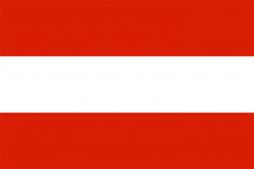An Honest Broker in Difficult Times: Austria”s Presidency of the EU
An analysis of Austria’s Presidency of the EU. Also available in German.

On January 1st, 2006, Austria
will take over the Presidency of the Council of the European Union from the
United Kingdom. It does so at a very difficult moment of European Union
history. The rejection of the Constitutional Treaty in the French and Dutch
referenda, the still not concluded negotiations on the Financial Framework and
the exacerbating differences on the WTO Doha Round put a special strain on this
Presidency which cannot linger on routine issues only. Its self-definition as
an “honest broker” rendering a service to the European Union is in
jeopardy if it lacks clear and viable strategies for overcoming the problems
haunting the Union today.
The advances for the European
Union that can be expected from the Austrian presidency depend, above all, on
the pending consensus on the financial perspectives of the EU. If this
consensus is reached within the British Presidency, one can expect Austria to
deal expertly and meticulously with the abundance of ensuing detailed problems.
If the December European Council fails to find an agreement, viable solutions
during the Austrian Presidency seem doubtful. A consensus after such a failure
cannot easily be envisaged and would probably require a bolder political
position of the Presidency. Otherwise, even many of the smaller goals may well
be jeopardised.
On the other hand, Austria
does not seem willing to tackle the other big question for the EU for the time
being, namely the Constitutional Treaty. While Austria supports the Commission’
Plan D and has started a communication initiative for its citizens, it does not
aim at developing concrete proposals for the future of the Constitution.
A third salient issue for the
Austrian presidency will be the Commission’s report on national implementation
of the Lisbon strategy. Austria’s main focus in this regard lies in research
and innovation policies and educational and employment issues.
Austria’ own priorities are,
above all, closer relations between the EU and the Western Balkans that shall
be achieved within several policy fields. Another subject emphasised by
Austrian officials is the question of subsidiarity and, above all, the role of
national parliaments in European integration.




